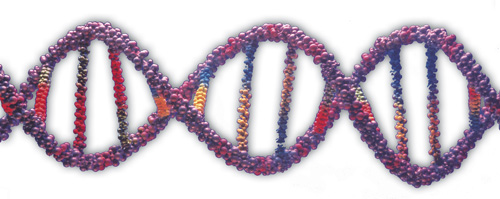|
[home] [subscription form] [cover story] [introduction] [people and places] [medical spa destinations]
|
||

VOLUME 2008 chapter 1
Omega-3 Cuts Brain Plaque Buildup Characteristic of Alzheimer’s Disease
Greg Cole and colleagues from the University of California/Los Angeles (UCLA) have shown that docosahexaenoic acid (DHA), a type of omega-3 fatty acid, cuts the buildup of plaques from beta-amyloid deposits that are associated with brain cell damage and the onset of Alzheimer’s Disease (AD). Specifically, the researchers found that DHA boosts production of a protein, LR11, that is known to destroy the brain plaques characteristic of AD. The team found that the protective effects of DHA on LR11 persisted in models of cells from mice, rats, and human brain cells. The researchers encourage the intake of supplemental fish oil (one of the most potent sources of omega-3s) as a interventive measure at the earliest stages of the onset of Alzheimer’s.
[Qiu-Lan Ma, Bruce Teter, Oliver J. Ubeda, Takashi Morihara, Dilsher Dhoot, Michael D. Nyby, Michael L. Tuck, Sally A. Frautschy, and Greg M. Cole. “Omega-3 Fatty Acid Docosahexaenoic Acid Increases SorLA/LR11, a Sorting Protein with Reduced Expression in Sporadic Alzheimer's Disease (AD): Relevance to AD Prevention.” The Journal of Neuroscience, December 26, 2007, 27(52):14299-14307; doi:10.1523/JNEUROSCI.3593-07.2007.]
Dr. Klatz remarks: “Currently, about 12 million people in the United States and Europe suffer from Alzheimers. Some projections estimate that number will triple by 2050. Consequently, the discovery and/or further substantiation of simple and effective natural, non-drug approaches that may counter the biological mechanisms behind the disease will become increasingly important in the coming decades.”
Wine Polyphenols Combat Effect of Fatty Foods
Joseph Kanner from Volcani Center (Israel) and colleagues have discovered that red wine polyphenols mitigate the levels of a by-product of fat digestion that is known to increase the risk of cardiovascular disease and other conditions. In their study, the researchers identified that red wine polyphenols prevented the production and build-up of malondialdehyde (MDA) in the blood. The team reported that: “Our study suggests that red wine polyphenols exert a beneficial effect by [this] novel function -- absorption inhibition.”
[Shlomit Gorelik, Moshe Ligumsky, Ron Kohen and Joseph Kanner. “A novel function of red wine polyphenols in humans: prevention of absorption of cytotoxic lipid peroxidation products.” The FASEB Journal. 2008;22:41-46. Published as doi: 10.1096/fj.07-9041com.]
Dr. Goldman observes: “This study continues a line of recent and exciting studies correlating a multitude of health benefits with red wine. Resveratrol, a compound that is found in the skin of red grapes and is a constituent of red wine, has been associated with a number of anti-inflammatory, anti-viral, and neuroprotective effects. This study’s identification of the role of red wine polyphenols in reducing fat digestion by-products could serve to help explain the “French paradox” that the incidence of coronary heart disease is relatively low in southern France and the Mediterranean countries despite high dietary intake of saturated fats.
Combatting Fatigue and Improving Mental Function in the Very Old
As we age, our natural levels of L-carnitine drops; yet L-carnitine is necessary to help cells to produce energy from fat. As a result, many older people suffer from weakness, impaired mobility, poor endurance, and declining mental health. Mariano Malaguarnera and colleagues from the University of Catania (Italy) report that L-carnitine, an amino acid available as a nutritional supplement, can lessen fatigue and boost mental function in the very old. In a group of people age 100 and over, the Italian researchers found that L-carnitine supplementation reduced cholesterol levels, boosted muscle mass, and reduced fat mass. Those taking the supplement also reported significant reductions in mental, physical, and overall fatigue. They scored higher on a test of mental function, and were able to walk significantly farther than those who did not take the supplement. L-carnitine supplementation was well tolerated by the study subjects, with no serious side effects.
[Malaguarnera M, Cammalleri L, Gargante MP, Vacante M, Colonna V, Motta M. “L-Carnitine treatment reduces severity of physical and mental fatigue and increases cognitive functions in centenarians: a randomized and controlled clinical trial.” Am J Clin Nutr. 2007 Dec;86(6):1738-44.]
Dr. Klatz comments: “L-carnitine levels reach a lifetime low starting at age 70, which may contribute to many of the common complaints of aging – weakness and lack of endurance, mobility issues, poor memory and attention, etc. This study is a striking demonstration of a simple, natural, and safe approach to curb these aging-related issues.”

